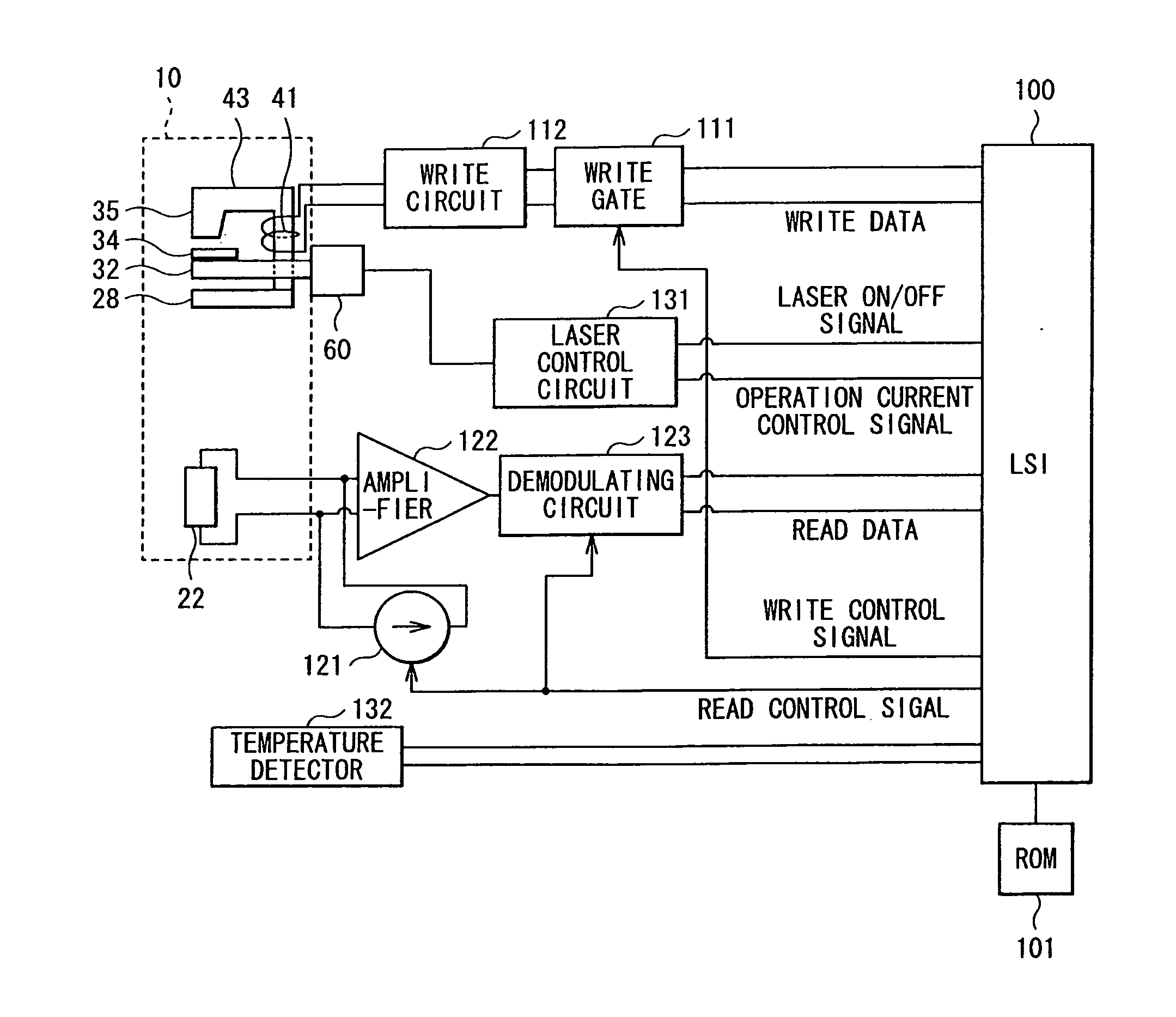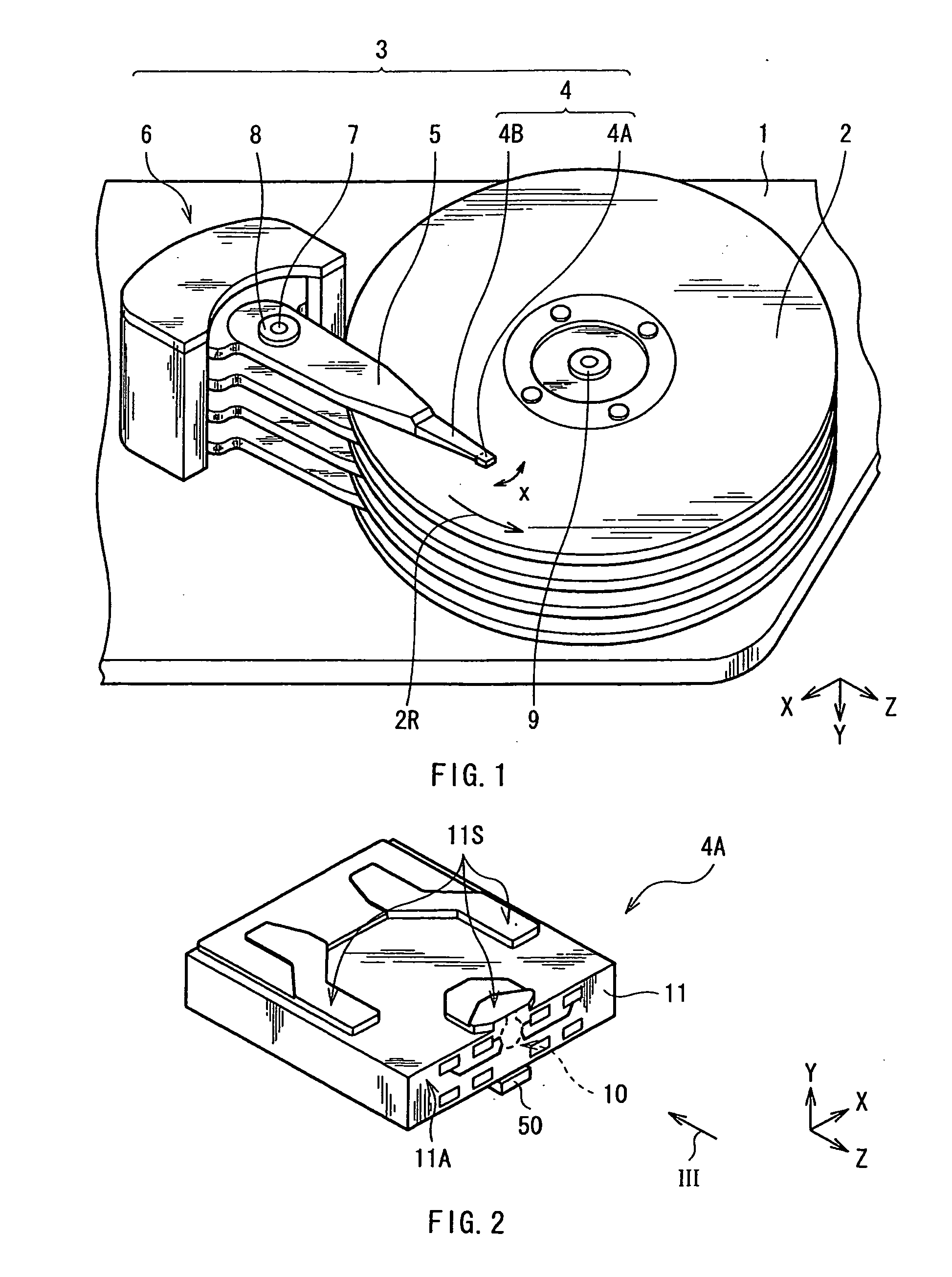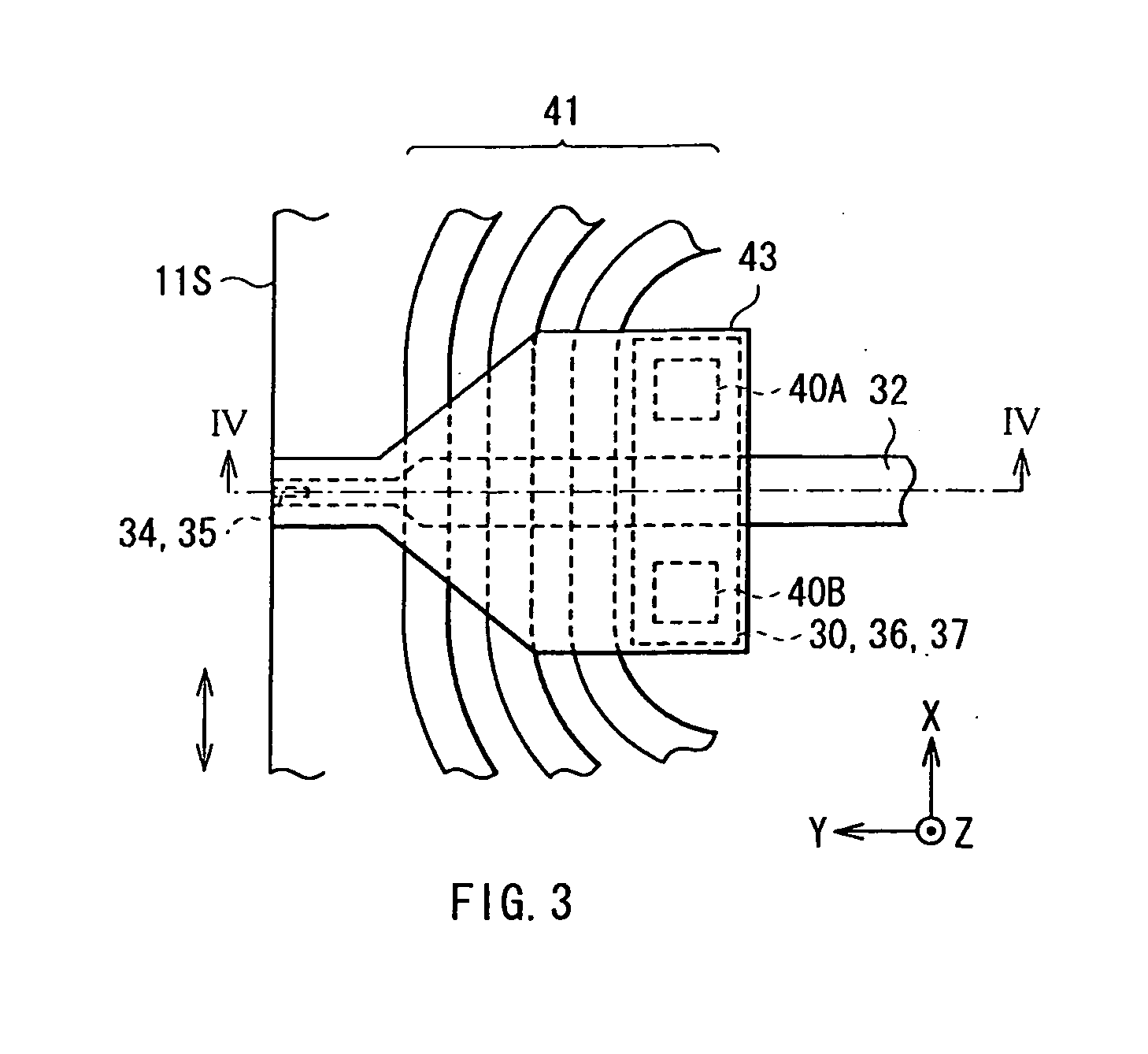Heat-assisted magnetic write head, head gimbals assembly, head arm assembly, and magnetic disk device
- Summary
- Abstract
- Description
- Claims
- Application Information
AI Technical Summary
Benefits of technology
Problems solved by technology
Method used
Image
Examples
example 1
[0105]In Example 1, the magnetic read write head 10 as the above-described embodiment illustrated in FIGS. 2 to 7 and the like was manufactured according to the manufacturing method described in the above-described embodiment. Here, the dimensional ratio of the components in the ABS 11S were as follows. When the width of the waveguide 32 in X-axis direction was 1 (500 nm), the width of each of the mid-portion C34 and the wing portion W34 of the first portion 34A was 0.7 and 18, the thickness of the lower layer 34L was 0.1, the maximum thickness of the upper layer 34U was 0.4, the maximum width of the magnetic pole 35 was 0.7, the thickness of the magnetic pole 35 was 2, and the distance between the pointed edge 34G and the waveguide 32 in Z-axis direction was 0.07 (refer to FIG. 5).
example 2
[0106]In Example 2, except that having a sectional surface shape illustrated in FIG. 19, the magnetic read write head 10A having the same structure as that of Example 1 was manufactured according to the manufacturing method described in the above-described embodiment. Specifically, in the magnetic read write head 10A, the plasmon generator 34 was configured by only a portion corresponding to the lower layer 34L in the magnetic read write head 10A, and the width of the second layer 352 of the magnetic pole 35 was larger than that of the waveguide 32. More specifically, when the width of the waveguide 32 was 1 (500 nm), the width of the second layer 352 of the magnetic pole 35 was 2. Therefore, the second layer 352 of the magnetic pole 35 was formed to cover also a part of the wing portions W34 of the plasmon generator 34, and the bending portion 34 BN is formed at the interface between the plasmon generator 34 and the magnetic pole 35. In addition, the relative angle θ at the interse...
example 3
[0107]In Example 3, except that having a sectional surface shape illustrated in FIG. 20, the magnetic read write head 10B having the same structure as that of Example 1 was manufactured according to the manufacturing method described in the above-described embodiment. Specifically, in the magnetic read write head 10B, the plasmon generator 34 was configured by only a portion corresponding to the lower layer 34L in the magnetic read write head 10A.
[0108]The magnetic read write heads 10, 10A, and 10B of Examples 1 to 3 thus manufactured were used to perform heat-assisted magnetic recording into a magnetic disk, and the intensity distribution of the recording magnetic field applied to the magnetic disk at that time was examined. The results are illustrated in FIG. 21 and FIG. 22.
[0109]FIGS. 21A to 21C correspond to the magnetic read write head 10, 10A, and 10B of Examples 1 to 3, respectively, and each illustrate the intensity distribution of the recording magnetic field applied to the...
PUM
 Login to View More
Login to View More Abstract
Description
Claims
Application Information
 Login to View More
Login to View More - R&D
- Intellectual Property
- Life Sciences
- Materials
- Tech Scout
- Unparalleled Data Quality
- Higher Quality Content
- 60% Fewer Hallucinations
Browse by: Latest US Patents, China's latest patents, Technical Efficacy Thesaurus, Application Domain, Technology Topic, Popular Technical Reports.
© 2025 PatSnap. All rights reserved.Legal|Privacy policy|Modern Slavery Act Transparency Statement|Sitemap|About US| Contact US: help@patsnap.com



